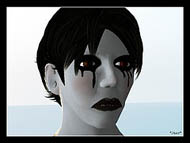 I am not guilty because I am in pain. I am not a criminal because I want to be pain free.
I am not guilty because I am in pain. I am not a criminal because I want to be pain free.
I was released from a central Ohio hospital Thursday after major surgery to my abdomen. The incision is 8 inches long. The morning of the day I left, I still needed intravenous Dilaudid to relieve my pain. By that afternoon, my pain was held in check by 3 Percocets every 5 hours. My body’s tolerance for Percocet is high, since I’ve been on it dozens of times in the past decade.
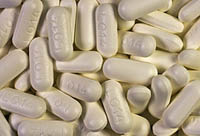 I had had a horrible week with pain. Monday night about 8 hours after my surgery I was in the most excruciating pain I’ve ever been in. And I’ve had Pancreatitis and Whipples Resection surgery, both extremely painful physical experiences. The surgeon had ordered a very conservative dose of Dilaudid. He increased it only after I was subjected to extreme pain.
I had had a horrible week with pain. Monday night about 8 hours after my surgery I was in the most excruciating pain I’ve ever been in. And I’ve had Pancreatitis and Whipples Resection surgery, both extremely painful physical experiences. The surgeon had ordered a very conservative dose of Dilaudid. He increased it only after I was subjected to extreme pain.
As I lay yelling for relief I was told the nurse was busy and would come as soon as she could. When she did arrive, she chuckled at me lying there moaning in pain. I couldn’t believe it. I told her she wouldn’t be laughing if she had my pain. She later apologized, but it highlighted a common problem.
 Nurses are trained to care for patients, including treating their pain. They are also trained not to be too attached to the patient’s emotions. It’s difficult to draw the line. This nurse’s lack of compassion for me was her failing, but not the cause of my suffering. The surgeon’s lack of foresight limited her ability to help me.
Nurses are trained to care for patients, including treating their pain. They are also trained not to be too attached to the patient’s emotions. It’s difficult to draw the line. This nurse’s lack of compassion for me was her failing, but not the cause of my suffering. The surgeon’s lack of foresight limited her ability to help me.
When I was released, I had to lobby for more than a very frugal dose of pain meds to take home, 20 Percocets total. A few months ago I had another small surgery and was sent home with 40, more than I needed, but plenty to make me comfortable until healed.
But this surgeon apparently believes in “tough loveâ€. Perhaps he also believes that boys who cry are sissies and pain strengthens the spirit. We come from a puritanical culture where pain is something you should endure, that it’s good for character. Even those who supposedly embody the spirit of compassion are not necessarily aligning themselves with the patient’s comfort.
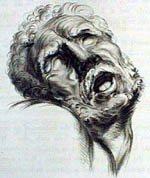 Mother Teresa’s hospitals for the sick and dying were stingy with pain treatment, believing that pain brings you closer to god. I wonder how many died there in agony, wondering if the next life would be so cold to their comfort.
Mother Teresa’s hospitals for the sick and dying were stingy with pain treatment, believing that pain brings you closer to god. I wonder how many died there in agony, wondering if the next life would be so cold to their comfort.
Even my father, while visiting me in the hospital, encouraged me to keep a stiff upper lip and grow from the pain. He said it lightheartedly, but the message was clear. Stop whining. Deal with it!
Perhaps pain can strengthen the spirit, but only if one chooses to be in pain. Athletes who push themselves to painful levels of training are doing so by their own volition. Meditators who endure fire or needles have volunteered. Those suffering from wounds inflicted by a surgeon’s scalpel may have needed the surgery, but they didn’t chose to be in pain.
After loud lobbying for more than “god’s anointed†amount of painkillers, I was sent home with double that amount, 40. The dose was to take 3 every 5 hours as needed for pain.
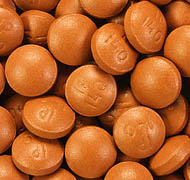 That was Thursday afternoon at 5 PM. Through out that evening and night, I was in constant pain. It’s not that I can’t endure some pain. But when pain is so debilitating that I can’t eat, move or breath properly, then it’s interfering with my health and healing, something doctors are supposed to be interested in.
That was Thursday afternoon at 5 PM. Through out that evening and night, I was in constant pain. It’s not that I can’t endure some pain. But when pain is so debilitating that I can’t eat, move or breath properly, then it’s interfering with my health and healing, something doctors are supposed to be interested in.
Symptoms got worse that night, which is not unusual. I took the prescribed amount of meds. By Friday afternoon, I realized I may not get through the weekend without running out.
I called the surgeon’s office to let them know. They told me they would not prescribe more and that I should just make them last. “Don’t take so manyâ€, I was told. I was found guilty of being in pain and had dared to ask for compassion. Stiff upper lip! Build character! Seek god in the pain!
Many people abuse pain meds. They are highly addictive and are rightly highly controlled. But as I described in my earlier post on this subject, “Not So Rare Airâ€, there are a few souls among the “catholic pain purists†who believe compassionate treatment pain is more important than the risk of some addiction.
Those in pain are not criminals who are automatically guilty of addiction until proven innocent. That’s like saying all black men are criminals and all gays are child molesters. I suggest those to stereotypes because many in our society do think that way. It is socially acceptable that this hospital continues to treat every patient as suspect until satisfactory medical “validation†has been provided.
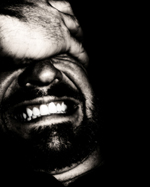 When I arrived in the ER of this same hospital a few weeks ago with what was thought to be gall bladder attack, (another story) I languished in the waiting room for two hours, screaming in pain, until a doctor could treat me. Why doesn’t the hospital have a trained pain technician to make the patient comfortable until the proper doctor can attend? Why didn’t a doctor treat my pain and then return later to diagnose? Why weren‘t more doctors available in the ER?
When I arrived in the ER of this same hospital a few weeks ago with what was thought to be gall bladder attack, (another story) I languished in the waiting room for two hours, screaming in pain, until a doctor could treat me. Why doesn’t the hospital have a trained pain technician to make the patient comfortable until the proper doctor can attend? Why didn’t a doctor treat my pain and then return later to diagnose? Why weren‘t more doctors available in the ER?
Perhaps I wasn’t bleeding or retching or showing any sufficient “external†symptoms to validate my illness and my pain. I just “acted†like I was in pain. The nurses who checked on me smirked or acted impatient with my moaning. In this case the patient was guilty until proven innocent.
Here it is Saturday afternoon and I am quickly running out of pain meds. Luckily I didn’t need quite as many last night and today things are going better. But I am already in enough pain to lose my appetite and have difficulty taking a therapeutic walk to heal further. Yet I dare not “overdo†treating my pain. Remember, I am already guilty. I need to “grow†from this pain.
Better meds are needed for treating pain. Science will surely come up with non-narcotic replacements for these troublesome culprits. Toward that goal, my surgeon instructed me to take up to 800 mg of ibuprofen every 6 hours, a huge amount which has apparently been found safe. It has helped take off the edge. Each day my condition improves. I’m not in agony. I also admit that I may not be objective about all this. Pain is a powerful persuader, and so is the built in allure of addictive narcotics.
The point is that I believe I experienced unnecessary suffering because of a cultural and legal system fearful of leniency. If narcotics do the trick, palliate the pain, then treat any problem of addiction, not the other way around.
What do you think?
Some thoughts on Truth (reality), Possibility (change) and Being (consciousness).






